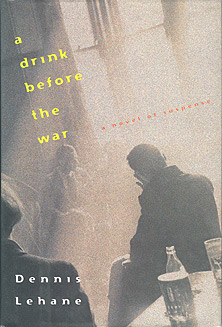I am so tired of sexy vampires. Particularly ones whose
entire personality can more or less be summed up as ‘mysterious’. If they are
in a rather bland love triangle where the heroine is torn between the good guy
and the sexy vampire bad boy, I begin to lose the will to live.
So it’s not good news that The Bitter Seed of Magic by Suzanne McLeod features such a vampire
and such a triangle. I picked the book up looking for light entertainment, and
it is in fact the third in the serious (I confess, I read books out of order,
so sue me – that’s what happens when you’re taking your choice from what’s on
the library shelves). But unfortunately, I didn’t find in particularly
entertaining, and just now when my eye caught the quote on the cover calling it
a “Fresh, unique and urban paranormal
fantasy at its best [sic]” I nearly choked on my coffee. Although on second
thoughts the lack of grammar and punctuation in that quote is probably
something of a giveaway, either as to the quality of the recommending
publication or the quality of the editing.
Which brings me to the editing of the book. I accept that
writers have tics, in fact we all have writing tics (you may have noticed one
of mine is overuse of the em-dash and brackets – probably punctuation overuse
in general, actually.) McLeod suffers from the same problem with the em-dash,
which I noticed but sympathised with. The one tic that did drive me absolutely
bonkers when reading this book was the italics. To give you an idea, I opened
it at page 5 and found no less than seven italicised words. One instance is,
fair enough, a foreign phrase of two words. The rest? Thought, crack, human,
looked and look. Apparently McLeod italicises anything that may have some
magical significance, then italicises some more for emphasis. But this is the
type of thing that a competent editor is supposed to fix, and I simply cannot
understand why no-one addressed this. It made me consider putting the book down
a few pages in, although I did eventually get used to it (sort of).
It’s a shame in some ways because sexy vampires and stereotypic
character relatonships aside, there is some good world-building here. It’s
fundamentally an urban fantasy with strong celtic elements, as well as a few
vampires and witches for good measure. The main character, Genevieve, is
likable enough, although she does seem to have a disturbing tendency to throw
herself into bed with other members of aforesaid love triangle. It seems a
little odd, possibly because the sexual tension between them also seems rather
forced. I can’t put my finger on exactly why, but perhaps it’s something to do
with the fact that McLeod doesn’t provide reasons for Genevieve’s actions
other than that the men are, of course, sexy (and supernatural). In fact, the
lack of convincing backstory is another conspicuous hole in the plot.
Ah, the plot. Let me just say, I was pretty sure my brain was
going to explode out my ears at some point, and not in a good way. I would bet
you whatever you like that McLeod is one of those writers who makes things up
as she goes along, because the way everyone turns out to be related to everyone
else at the end seems implausible to say the least. It rather suggests that
having dug herself into a rather deep and complicated hole some fancy footwork
was required to get herself out again. And unfortunately, by that point I’d lost
track of whom was related to whom and it didn’t all make that much sense
anyway.
My verdict? It could have been better, but bad editing has
ruined what was in any case a not-very-original book. One for the
sexy-vamp-fans only.





